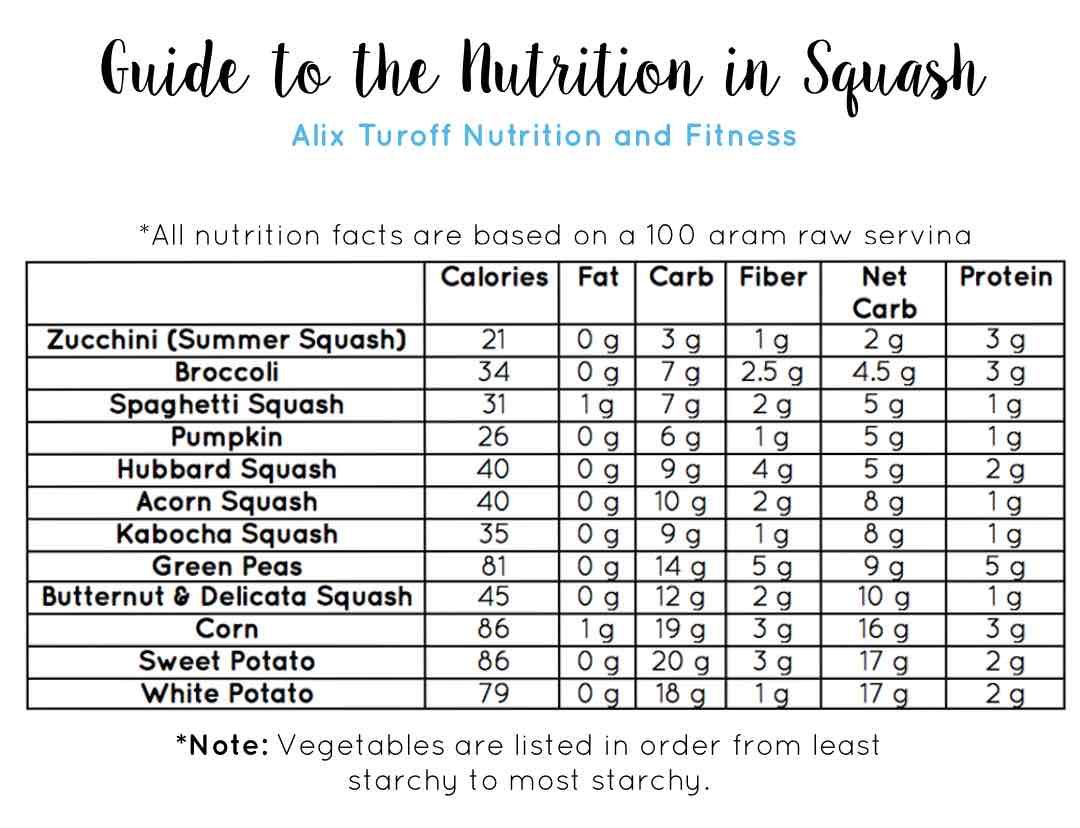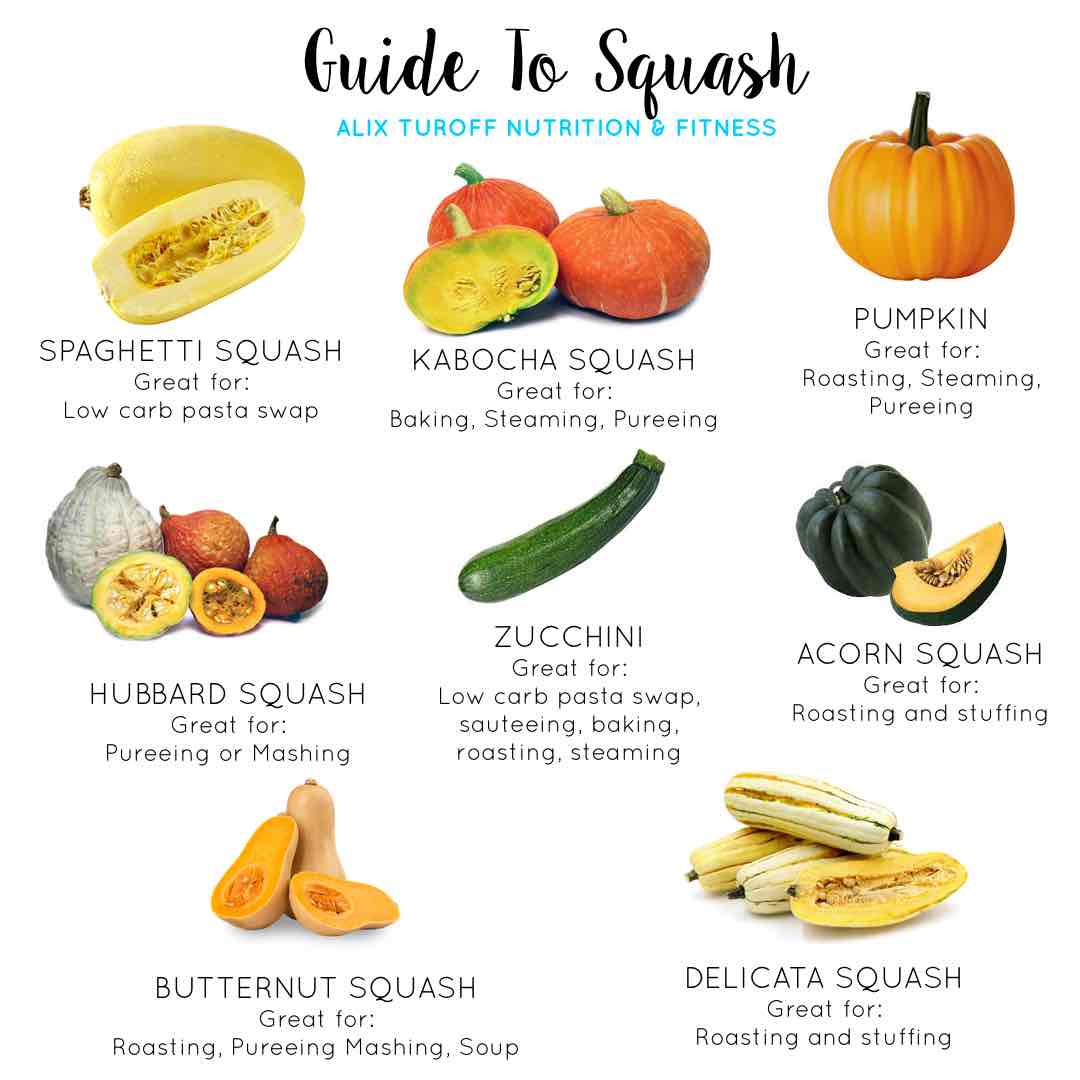I often get asked whether butternut squash is considered a non-starchy or starchy vegetable. The truth is, butternut squash and other similar winter squash varieties (such as acorn squash, delicata and hubbard squash), fall somewhere in between starchy and non-starchy vegetables.
I’ve created a chart to help you compare the carbohydrate content of different varieties of squash as they compare to non-starchy vegetables such as broccoli and starchier vegetables like white and sweet potatoes.
As you can see, zucchini or “summer squash” is less starchy than winter squash varieties. You can also see that despite popular belief, sweet potatoes and white potatoes contain the same amount of net carbohydrate per serving. Sweet potatoes do provide more vitamin A but many dieters choose sweet potatoes because they believe they are inherently “better” for weight loss.
While corn and green peas are usually lumped together in the same category, the difference is that green peas contain more fiber and protein than corn and thus, are less starchy.
Butternut squash is often thought to be a starchy vegetable but you can see that it’s not quite as high in starch as a potato. This makes butternut squash a great option for those on a lower carb diet who still want to get the flavor of a starchier root vegetable.
I picked up Trader Joe’s Organic Sliced and Roasted Delicata Squash and I think I’m obsessed. It’s SO easy to make. You just open the bag (it’s frozen), put the squash on a baking sheet, sprinkle with salt and pepper and bake it.
I drizzled mine with tzatziki sauce and fresh parsley and it was delicious. Such an easy week night side dish.
Looking for more squash recipes? Check out my recipe for butternut squash puree!


